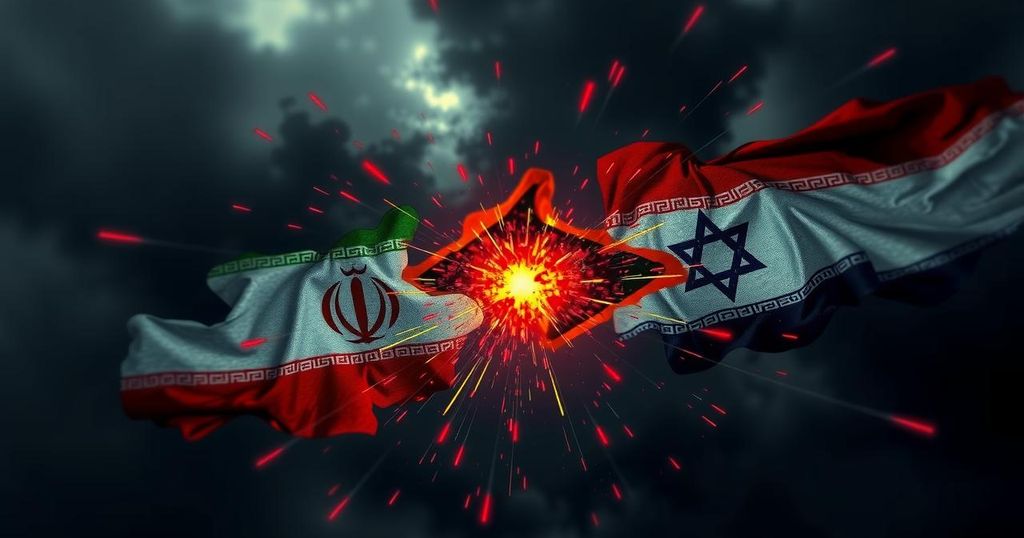Iran has accused the US and Israel of colluding with terrorist organizations to destabilize Syria following significant gains by opposition groups in Idlib province. This claim comes amid a backdrop of geopolitical maneuvering involving Turkey and Russia, as Iran consolidates its support for the Assad regime and seeks to expel US forces from eastern Syria. The unfolding events highlight the intricate and multifaceted nature of the conflict in the region.
Iran has expressed alarm over the rapid advances made by Syrian opposition groups, particularly Hayat Tahrir al-Sham (HTS), in Idlib province, which included the capture of Aleppo from Syrian government forces. As these events unfolded, Iranian officials attributed the coordinated success of the opposition to perceived collusion among the US, Israel, and terrorist organizations. Iran’s Foreign Minister, Abbas Araghchi, articulated this position, suggesting that there was a calculated plan that coincided with a recent ceasefire in Lebanon, which led to HTS’s offensive in northern Syria.
Iran’s stance involves claiming that the US and Israel are backing these rebel advances to further destabilize Syria. They argue that the strategic timing of HTS’s actions was not coincidental and directly linked to the ceasefire in Lebanon. Although HTS’s assault may have been catalyzed by Hezbollah’s reported defeats, there is no direct evidence to confirm that the US or Israel are supporting this opposition force. On the contrary, Israel has expressed concern that escalating chaos in Syria could empower Iranian-aligned groups, which pose a direct threat to its security.
Additionally, Iran has sought to consolidate support from regional actors, including Turkey and Russia, using this narrative of conspiracy as leverage. Tehran’s strategy appears to involve pushing for a withdrawal of US forces from eastern Syria, leveraging the situation against the Syrian Democratic Forces (SDF), predominantly Kurdish forces that the US has been supporting in combating ISIS. Iran’s collaboration with Turkey is notable as Ankara has mobilized Syrian militias against Kurdish targets, aligning its interests with those of Iran in this complex geopolitical chess game.
Finally, Iranian officials have reaffirmed their commitment to backing the Assad government, asserting solidarity with Syria similar to the support they received during the Iran-Iraq War. The Iranian Foreign Minister noted ongoing consultations to strengthen this alliance and confirmed that discussions would continue among high officials from Iran, Russia, and Turkey in upcoming meetings in Doha to address these regional issues.
The Iranian government has a vested interest in the outcome of the Syrian civil war and closely monitors developments in the region. Following the Syrian regime’s losses, the rise of opposition entities such as HTS has alarmed Tehran, prompting the Iranian regime to frame these developments in terms of conspiracy involving the US and Israel. Iran’s ties with Hezbollah and its support for the Assad regime are critical as they seek to maintain influence in Syria while countering perceived Western and Israeli hegemony in the region.
Iran’s accusations against the US and Israel regarding the instability in Syria illustrate its strategy to portray itself as a defender of Syrian sovereignty against external aggression. By asserting these claims, Iran seeks to justify its military presence in Syria while consolidating alliances with Turkey and Russia. The regional dynamics are complex, and the interplay of various forces, including the Kurdish SDF and HTS, further complicates the situation, necessitating coordinated efforts among the involved parties to stabilize the region in a way that aligns with their respective interests.
Original Source: www.jpost.com






